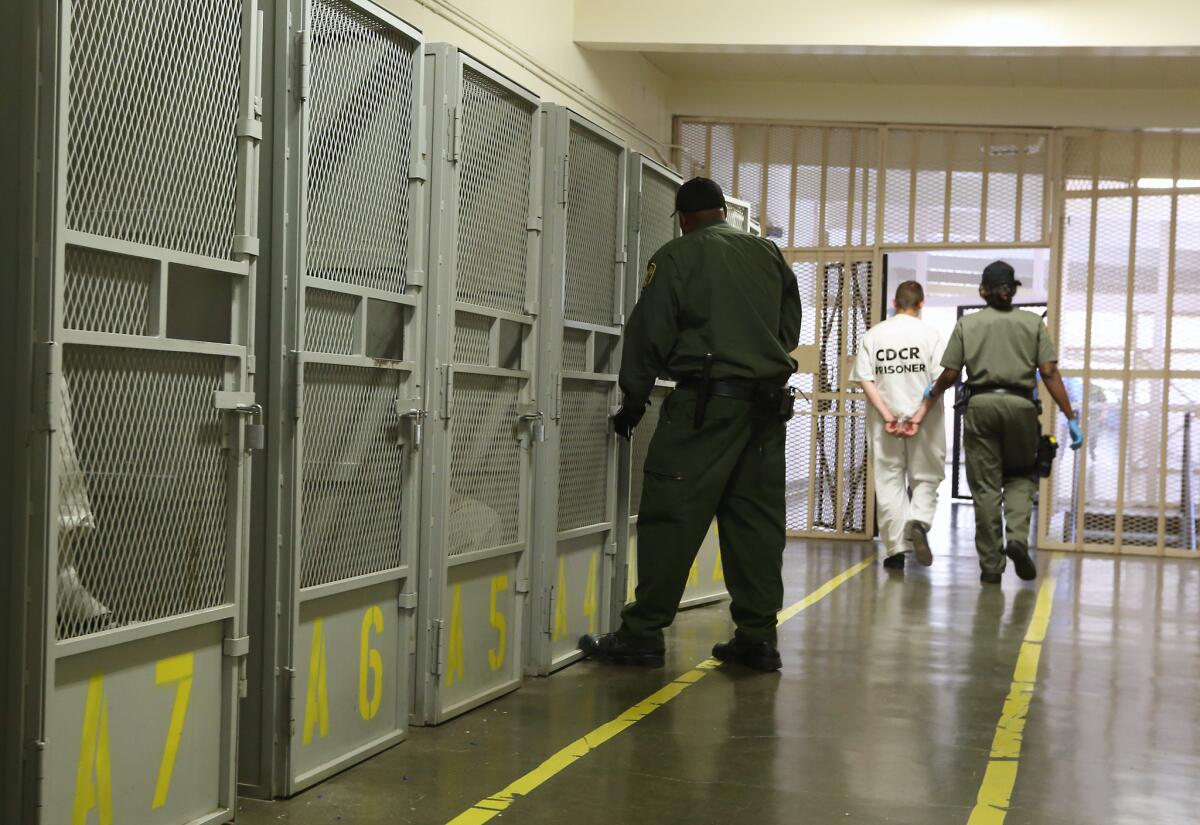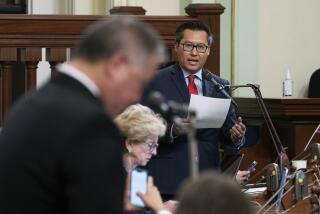Multiple convictions from one act count as one ‘strike,’ court rules

Supporters of a proposed ballot initiative gained clearance Tuesday to seek signatures for a measure that would further roll back California’s three strikes law.
The California Supreme Court decided unanimously Thursday that two felony convictions stemming from a single act may not be considered separate strikes under the state’s “three strikes” sentencing law.
In the past, the court has ruled that two felonies may be treated as separate strikes even if they were prosecuted in a single trial.
But in a ruling written by Justice Kathryn Mickle Werdegar, the state high court said convictions based on a single act committed at the same time and against the same victim do not justify the harsher sentences imposed by the 1994 ballot measure.
The decision will overturn a 25-years-to-life sentence meted out to a woman who was convicted of a home burglary.
The trial judge imposed the harshest “three strikes” sentence after determining the defendant had two prior strikes — robbery and carjacking — that stemmed from a single act in 1999 of forcibly taking another’s car.
“Treating them as separate strikes is inconsistent with the spirit of the Three Strikes law,” Werdegar wrote, “and the trial court should have dismissed one of them and sentenced defendant as if she had only one, not two, qualifying strike convictions.”
When voters passed three strikes, they understood that a defendant would have three chances — three swings at bat — before the harshest sentence could be imposed, the court said.
“The public also would have understood that no one can be called for two strikes on just one swing,” Werdegar wrote. “Permitting the trial court below to treat defendant’s 1999 robbery and carjacking convictions as separate strikes — despite the fact they were based on a single criminal act — would do just that.”
The ballot initiative doubled the sentence of someone convicted of a second qualifying felony and imposed life for a third qualifying conviction.
Follow @mauradolan on Twitter.
More to Read
Start your day right
Sign up for Essential California for news, features and recommendations from the L.A. Times and beyond in your inbox six days a week.
You may occasionally receive promotional content from the Los Angeles Times.







